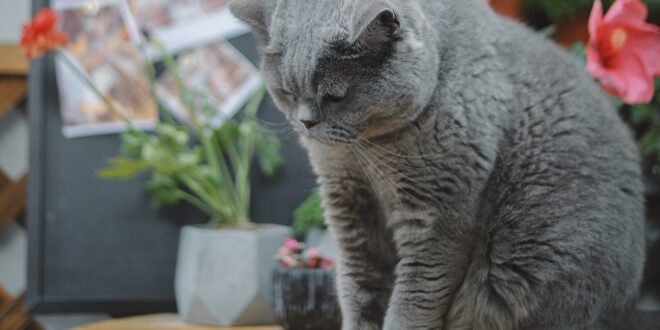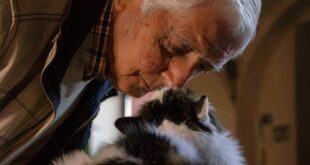Let’s face it – with a reputation for sleeping between 12 to 16 hours a day, cats aren’t exactly the most active of animals. That, in itself, doesn’t equate to a symptom of moggie depression. It’s other, more subtle signs that indicate your cat’s mental health may have taken a tumble – and right now, it’s not unlikely. It’s all to do with the Covid pandemic, and the effect it’s had on our pets.
Cats are creatures of habit. They come and go as they please, and because their owner or owners are away from home for much of the day, they have full reign of the house and the immediate outside environment. When the Covid pandemic, and its associated lockdowns arrived, it all changed.
Suddenly, from a cat’s perspective, their home was overrun with occupants, music, TV noise, and people occupying their favourite sleeping spots. Even now, as the world begins to open up again, many people are choosing to work from home, or are forced to self-isolate for days at a time. Grandparents have children in their homes more than ever as they help out family caught up in the busy task of caring for Covid patients or managing testing and vaccination stations.
The toll this ‘home invasion’ has taken on cats has been documented by researchers at Queensland’s James Cook University. They checked out the owner-pet situation of 400 households who were forced to share space during the pandemic. And while dogs came out on top (loving the extra attention they received) cats didn’t fare nearly so well. In fact, according to the study, around 50% of cats were ‘put out’ by the change in living patterns.
Whether or not your cat was or is affected by the pandemic, if you’re concerned about its mental health, there are signs you can check for. The first are purely physical: your cat may be failing to groom itself well, be refusing to eat normally, or sleeping more than usual. Behavioural changes can also signal depression, and can include: hiding from particular people, hiding in general, lashing out when approached, toileting outside the litter tray, and showing little interest in favourite toys.
Fortunately, when it comes to cats, a dip in mental health is likely to be short term, and there are ways you can help your pet recover. Offering more tempting food, taking time to actively play with your cat, remembering to show affection regularly (a pat or rub round the ears while passing is to be encouraged), and simply talking to puss, will all help improve his or her mood. If you regularly have active children in the house, make sure at least one room of your home is out of bounds to them, and be sure to leave the door open a little so your cat can retreat to it.
If you want to take recovery up a notch, you may even like to play puss a sound track specially composed with the mental health of cats in mind. Cosmo’s Air is the work of musician David Teie, who is well known for his studies on ‘species-specific’ music. The soundtrack delivers tones which cats use to vocalise, as well as a pulse that relates to the number of times cats purr per minute.
If you decide to play Cosmo’s Air to your moggie, check out their reaction by noticing if it induces purring, causes them to rub against the speaker of your sound system, or look toward the source of the music. A dose of moggie-music may be just the cure you’re looking for to bring you cat back to good mental health!









Join the Discussion
Type out your comment here:
You must be logged in to post a comment.